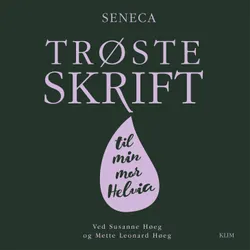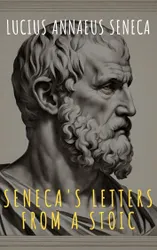Yale Classics (Vol. 2) stands as a monumental gathering of the pivotal works that have shaped classical literature and, by extension, much of Western cultural and intellectual history. This anthology showcases a vast array of literary styles, from the epic poetry of Virgil to the sharp satires of Juvenal, the philosophical musings of Seneca, and the historic accounts of Tacitus, embracing the rich diversity inherent in Roman and Greek literature. The collection is remarkable not only for its inclusion of well-known masterpieces but also for its dedication to presenting a comprehensive tableau of the classical era, offering readers a nuanced exploration of themes such as morality, politics, love, and the human condition. The assembled works illuminate the tapestry of ancient thought and its ongoing dialogue with contemporary times. The contributors to Yale Classics (Vol. 2) are among the most influential figures of antiquity, whose writings have survived the test of time to inform and enrich subsequent generations. Their collective oeuvre represents a range of historical, cultural, and literary movements from the classical world. From the philosophical inquiries of Plato to the political strategies of Julius Caesar, and the poetic innovations of Catullus, this anthology draws together the threads of ancient wisdom, artistry, and rhetoric. The inclusion of both celebrated and lesser-known authors enriches the collection's scope, enabling a deeper and more comprehensive understanding of ancient cultures. Yale Classics (Vol. 2) is an indispensable volume for both the seasoned scholar and the curious newcomer. It offers a unique opportunity to engage with the seminal works that have laid the foundations for Western literary and philosophical traditions. Readers are invited to journey through the ages, discovering the enduring relevance of these ancient texts. This anthology serves not just as a testament to the intellectual achievements of its contributors but as a gateway to exploring the complexities of human thought and culture across time. Through its pages, one can appreciate the beauty of classical literature and the profound impact it continues to make on our understanding of the world.

Om livets korthed. Om vrede. Om mildhed. Om sindsro
Lucius Annaeus Seneca
audiobook
Seneca's Letters from a Stoic
Lucius Annaeus Seneca, Icarsus
book
Moral Letters to Lucilius : Epistulae Morales ad Lucilium
Lucius Annaeus Seneca
book
Trøsteskrift til min mor Helvia
Lucius Annaeus Seneca
book
On Benefits
Lucius Annaeus Seneca
audiobookbook
Seneca's Letters from a Stoic
Lucius Annaeus Seneca, Reading time
book
Seneca's Letters from a Stoic
Lucius Annaeus Seneca, The griffin classics
book
Seneca's Letters from a Stoic
Lucius Annaeus Seneca, MyBooks Classics
book
Seneca's Letters from a Stoic
Lucius Annaeus Seneca, Redhouse
book
Seneca's Letters from a Stoic
Lucius Annaeus Seneca, Moon Classics
book
Moral Letters to Lucilius : Epistulae Morales ad Lucilium
Lucius Annaeus Seneca
book
The Greatest Works of Roman Classical Literature
Lucius Annaeus Seneca, Julius Caesar, Boethius, Horace, Plutarch, Apuleius, Virgil, Persius, Terence, Ammianus Marcellinus, Sallust, Juvenal, Lucan, Suetonius, Tibullus, Tacitus, Petronius, Cornelius Nepos, Lucretius, Martial, Catullus, Cicero, Claudian, Pliny the Younger, Saint Augustine of Hippo, Plautus, Ennius, The Metamorphoses, Augustus, Quintilian
book
